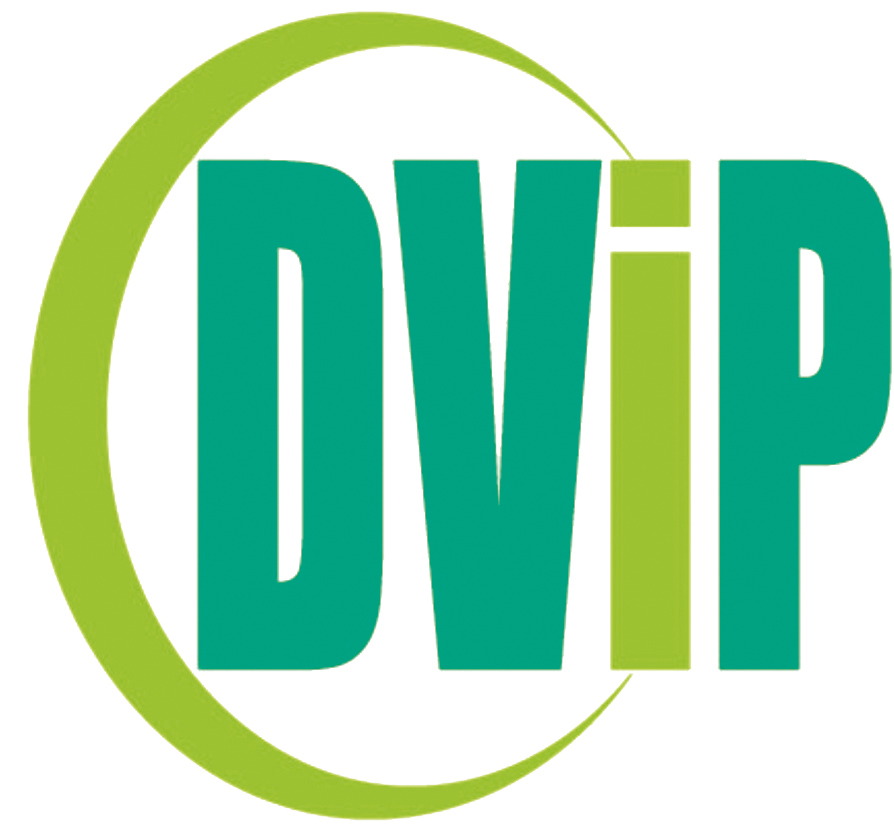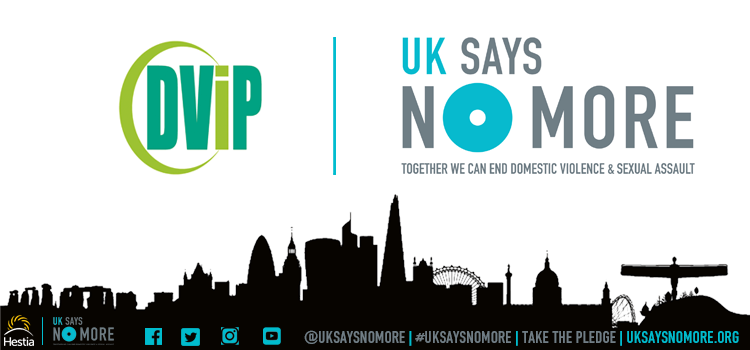DViP Join UK SAYS NO MORE and say NO MORE to Domestic Violence and Sexual Assault
With services across London, DViP work to stop domestic violence and to reduce the harm it causes to women, children and families.
DViP work with perpetrators to change their abusive behaviours, empower survivors to rebuild their lives and support children and young people affected by domestic violence to recover and build healthy and happy relationships.
Since their establishment in 1992, DViP have become the UK’s largest provider of domestic violence perpetrator programmes and have developed and pioneered a range of specialist and innovative services that support over 2000 adults, young people and children each year.
DViP provide:
- Accredited domestic violence perpetrator programmes to challenge and support abusers to stop their abusive and violent behaviours;
- Support services for (ex)partners of perpetrators on the programme to help them recover from domestic violence and empower them to re-take control of their lives;
- London’s only language and culture specific service for Arabic speaking communities;
- A service for young people using abuse in their close relationships;
- A support service for parents/partners affected by young people’s abuse;
- A therapeutic service for children to help them recover from the effects of domestic violence;
- The UK’s first combined domestic violence and substance misuse treatment programme with an integrated support service for victims;
- A male victims service;
- Expert risk assessments for private and public law cases;
- The Drive Project in West Sussex, an innovative project to develop, test and externally evaluate a new model to fundamentally change perpetrator behaviour among high-risk/serial perpetrators to make survivors and families safe.
- Multi-agency domestic violence training and consultancy.

Find more information on DViP’s specific services here: for men, women and parents with children.
To showcase some of their incredible work, DViP have put together a piece for us which highlights the massively underreported form of domestic violence – child to parent violence. Read their piece below to find out about their intervention scheme, Yuva, which works with young people to support long-term change.
‘I’m more scared of my 14 year old son than I was of my violent ex-husband’
‘I’m more scared of my 14 year old son than I was of my violent ex-husband of 14 years’, says Sofi of her son Jay. She goes on to describe his outbursts in which he smashes and breaks everything in the house, the times he has punched and kicked her, or sworn at her. ‘He wasn’t always like this’ she adds. ‘He used to be protective towards me but after his dad left the country and remarried he fell to pieces’.
Child to parent violence is the lesser known side of domestic violence.
It’s hard to imagine a child being aggressive towards their parent or making them feel scared. But that’s how Sofi felt about Jay.
Despite increasing research on child to parent violence, it is still massively underreported and little understood. As a result, there are few targeted and specialist behaviour change interventions for young people who are being aggressive and abusive, or support services for their parents. Often young people are offered anger management and counselling which do not explore underlying beliefs or provide linked support to victims.
That’s why in 2010 we established Yuva, meaning ‘youth’ in Hindi. Yuva works with young people (11-18 year olds) who exhibit abusive behaviour towards their parents. It combines an intervention for young people to support long-term behaviour change, alongside a support service for their parents to help them to strengthen their role as parent and respond to their child’s abuse safely. It also recognises the gendered nature of child to parent violence.
In over 90% of our cases, the mum is the victim and in 88% of cases the abuse is perpetrated by the son. Today, Sofi and Jay are both engaging with Yuva and have begun building a better family relationship.
Demand for our service continues to grow year on year highlighting that this is a persistent problem. The adolescents we work with are vulnerable and in need of specialist support to prevent them from becoming victims and/or perpetrators later on in life. Over 80% of them have additional support needs. These can be learning difficulties, substance misuse, previous experiences of abuse, being known to the criminal justice system or having caring responsibilities. On top of that, over 60% are NEET (Not in Education, Employment or Training). Many of the parents are also vulnerable having experienced abuse from their child’s father.
We work alongside young people to understand why they have used abuse, to develop more empathy, to explore safe and more effective communication and to develop healthy relationships. Our 1-2-1 work with parents focuses on their safety and wellbeing. With specialist support, they are able to better understand their child’s behaviour within the family context and feel less isolated by their experiences. Our work draws on best practice in the field and learning from emerging practice in the UK, Europe and internationally.
We have been delivering services for survivors and perpetrators of abuse for almost 25 years. We will be putting the spotlight on the support needs of children and young people affected by abuse during our 25th birthday celebrations next year.
It is time to give them a voice and ensure that they have the opportunity to lead a safer and brighter future.

Interested in becoming a partner of UK SAYS NO MORE?
We’d love to hear from you, please get in touch with Lyndsey Dearlove, Violence Against Women and Girls (VAWG) Partnership Manager.
You can contact Lyndsey by email at Lyndsey.Dearlove@hestia.org or by phone at 020 7378 3170.


